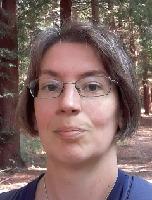Blog
Unless otherwise stated, content is shared under CC-BY-NC Licence
14 Things I Loved and Learned at iPRES 2025
Ruby L Martinez is a PhD student and Research Assistant at the University of Illinois Urbana Champaign and a Digital Preservation Assistant at Penn State. She attended the 2025 iPRES Conference with support from the DPC Career Development Fund, which is funded by DPC Supporters.
Although iPRES 2025 took place back in November 2025, releasing this reflective blog post around Valentine’s Day feels fitting. Conferences, at their best, are labors of love—toward our field, our communities, and the futures we are trying to build and preserve. A few months of distance has given me time to reflect more deeply on what stayed with me after the conference ended: the ideas that lingered, the connections that grew, and the values that felt affirmed. What follows are fourteen things I loved and learned at iPRES 2025.
The Pathway to Public Access
Helen Dafter is Archivist at The Postal Museum
In 2023 The Postal Museum acquired Preservica. At the outset our priority was to get our digital collections into the system, but the intention for future access informed our early decision making. In January 2026 the museum launched its Digital Collections Portal, providing online public access to our born-digital collections for the first time. This was a major milestone for The Postal Museum.
Supporting COPTR, our community-owned tool registry
Andy Jackson is Digital Preservation Specialist at the Digital Preservation Coalition (DPC)
Following the re-launch event last week, I wanted to give a summary of the state of the Community-Owned digital Preservation Tool Registry (COPTR).
Book Sprinting Towards Our New Handbook: What We Did and Why
Dorothy Waugh is Head of Workforce Development at the DPC
The Digital Preservation Handbook has long been a familiar companion to many of us working in digital preservation. It’s the kind of resource that we return to again and again - whether we’re new to the field, teaching, or trying to work through a tricky preservation challenge.
Because it’s been so well used (and so well loved), it’s also fair to say that the Handbook is due a refresh. Digital preservation practice is constantly evolving, and we’re excited to finally be getting started on work towards a third edition that reflects where the community is now and where it’s heading next. This was clearly demonstrated during the 2024 Handbook Third Edition Scoping Project, funded by the Welsh Government’s Culture Division, which was designed to ensure that community needs inform the goals and guiding principles of the forthcoming third edition.
Joint preservation workshop between KBNL and NLN
Inge Hofsink is Metadata Specialist at the KB National Library of the Netherlands and Trond Teigen is Team Lead of the Digital Preservation Team at the National Library of Norway.
On 18-19 November 2025, three representatives from the Digital Preservation Department of the KB, National Library of the Netherlands (KBNL), visited the Digital Preservation Team at the National Library of Norway (NLN) in Mo i Rana, Norway.
The background for the workshop was related to a serendipitous encounter at iPRES2024, triggered by Inge Hofsink’s (KBNL) presentation at the conference “It could happen to you: Thirty years of digital preservation in an ever-changing organization” and Torbjorn Petersen's (NLN) lightning talk “How the National Library established autonomous product team organization” . This led to a couple of virtual meetings between the institutions, before we found an opportunity to gather in-person.
Over the course of two “freezing cold” November days, we had a tightly packed schedule, starting with a guided tour of the NLN’s magazines and digitizing facilities in Mo i Rana.
Targeted automation for pre-ingest workflows at the UAL Archives and Special Collections Centre
Erin Liu is Assistant Archivist at the University of the Arts London. She recently completed the Postgraduate Certificate in Applied Data Science at Birkbeck with support from the DPC Career Development Fund which is funded by DPC Supporters.
With the support of a Member Self-Identified grant from the DPC Career Development Fund, I completed the Postgraduate Certificate in Applied Data Science at Birkbeck, University of London last autumn. I was motivated to pursue the course by experiences working with digitised and born-digital material across various roles held at the University of Arts London (UAL) Archives and Special Collections Centre (ASCC). In both my substantive role as Assistant Archivist and on part-time secondment through 2024 as Digital Preservation and Access Manager, I’d come across tasks and workflows that could potentially be optimised if our service was afforded the opportunity to deepen our in-house computational knowledge. The UAL ASCC has always had a strong practical sense of what we require computational processes to do. However, there was the possibility of benefitting from further training in practically developing, testing and applying scripts to directly improve our workflows, particularly at the pre-ingest stage.
DPC December Knowledge Wrap, week 4: The Advocacy Gift
Angela Puggioni is Community Engagement Manager at the Digital Preservation Coalition
With the end of the year in sight, I'd like to unwrap the final gift in our DPC December Knowledge Wrap, a four-week series sharing small reflections, resources, and highlights from across the Digital Preservation Coalition (DPC) as the year comes to an end. For this last post, let's turn to advocacy: making the case for digital preservation, helping others understand why it matters, and giving practitioners the confidence and tools to speak up for their work.
Advocacy at the DPC isn’t about slogans or soundbites. It’s about helping people explain the value of digital preservation in ways that resonate with colleagues, senior decision makers, funders, and wider audiences, and about amplifying the voices of our community as a whole.
Byte Christmas
In what is in danger of becoming a new Christmas tradition, here's a festive message to celebrate the upcoming relaunch of the COPTR tool discovery wiki.
I'm dreaming of a byte Christmas
With all the files I used to know
Where the JPEGs glisten and WAVs to listen
To hear that voice from long ago
I'm dreaming of a byte Christmas
With every replica I write
May your GIFs be merry and bright
And may all your checksums be right
I'm dreaming of a byte Christmas
With all the memories we've made
Formats slowly changing, bits rearranging
To be sure the meaning doesn't fade
I'm dreaming of a byte Christmas
No digital risks left to fight
May your ingest backlog be light
And may all your checksums still be right
And please remember, bytes are for life, not just for Christmas... If you care about tools that help you take care of your digital collections, please come along to the relaunch webinar and please consider joining the Preservation Registries Special Interest Group.
The Data Recovery of it all: iPRES 2025
Sally O’Callaghan is Senior Project Officer, Digital Archives Preservation Research, at National Archives of Australia. She recently attended the 2025 iPRES Conference with support from the DPC Career Development Fund, which is funded by DPC Supporters.
This year, I was fortunate to receive a DPC Career Development Fund grant, which allowed me to attend iPRES 2025 in Wellington, New Zealand. This was an incredible experience that resulted in career highlights for me and tangible learning to take back to National Archives of Australia.
AI-powered metadata workflows at the ICAEW Digital Archive
Craig McCarthy is Digital Archive Manager at the Institute of Chartered Accountants in England and Wales (ICAEW)
When we launched the ICAEW Digital Archive in early 2020, we did what many small teams do with a new system and limited staff: we prioritised preservation over description. We pushed thousands of digital objects into Preservica (our chosen digital preservation system) with only minimal metadata – and sometimes none at all. Our assumption was that most users would arrive via our traditional library catalogue, and would simply follow links through to the digital objects.
A few years on, it was clear that this approach had reached its limits, and so we began exploring how we could use AI as an assistive tool in metadata creation – both for tackling our metadata backlog, and for future ingests.
























































































































































